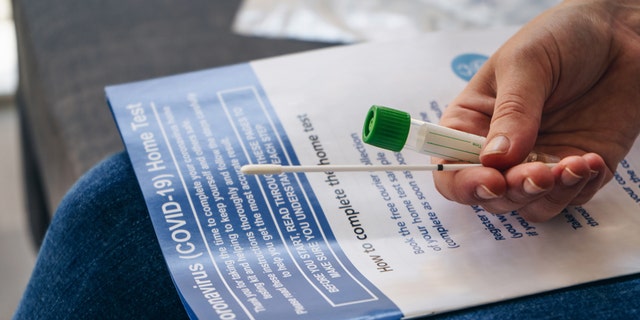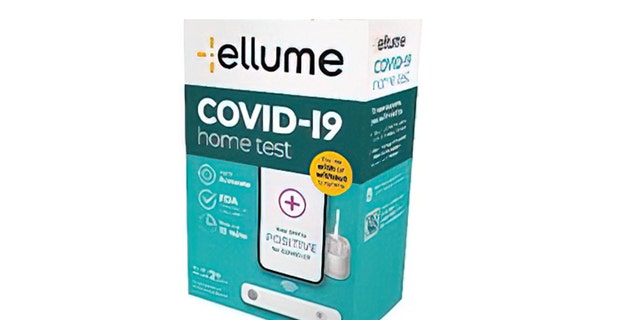COVID-19 counterfeit diagnostic at-home tests threaten public health: FDA
The United States Food and Drug Administration (FDA) wants the public to be aware of counterfeit at-home over-the-counter (OTC) COVID-19 diagnostic tests circulating in the United States, according to a recent press release.
“Counterfeit COVID-19 tests are tests that are not authorized, cleared, or approved by the FDA for distribution or use in the United States, but are made to look like authorized tests so the users will think they are the real, FDA-authorized test,” the administration said.
“The performance of these counterfeit tests has not been adequately established and the FDA is concerned about the risk of false results when people use these unauthorized tests.”
The at home diagnostic kits are primarily antigen tests.
“First, antigen is something (virus, bacteria, pollen, etc.) which causes the human body to produce an immune response to that substance. In the case of a virus, the body can respond by producing antibodies to the virus,” Dr. Michael Blaivas told Fox News.
He’s the chief medical officer at Anavasi Diagnostics, a National Institutes of Health-backed Rapid Acceleration of Diagnostics company and molecular diagnostic platform designed for the future of at-home testing.
“An antigen test looks for the same antigen the human immune system looks for with antibodies, but it uses antibodies made in a laboratory instead. When those antibodies (in the antigen test) bind to the target (virus) they can be made to give off a signal, which the test will recognize and know that it was positive for the virus.”
PRO-CHOICERS PICKET PELOSI’S HOUSE, CLAIM DEMOCRATS ARE ‘COMPLICIT’ IN POTENTIAL OVERHAUL OF ROE V. WADE
But the at home antigen tests are not always correct, sometimes causing a “false-negative” or a “false-positive” result.
A false-negative antigen test result is when a test comes back as negative even though the person has COVID-19, which can lead to a delayed diagnosis and treatment. This not only may cause serious harm to the patients, including severe illness and death, but also lead to spreading SARS-CoV-2 virus without realizing it, per the FDA.

In contrast, a false-positive antigen test result is when the test says someone has COVID-19 even though they don’t. This also can result in adverse consequences as well because the patient may have a delay of both diagnosis and treatment of an alternative life-threatening illness that needs to be treated.
The FDA recommends to check their list of authorized diagnostic tests on their website listed here to make sure the test kit purchased is not counterfeit, but patients can also contact the manufacturer of the test directly to confirm the test is FDA-authorized.
Some signs that at at-home OTC COVID-19 diagnostic test may be counterfeit include poor print quality on the outside labels and grammatical and spelling errors on product labels. The FDA recommends to always look for the outside labels to include the lot number, expiration date, barcode or QR codes.
“When you open the text kit package, look at the components inside and make sure they match the contents described. If there are missing instructions on how to use the kit, unfilled components or missing ones or the number of components is different than what is listed on the box, you may be dealing with a counterfeit product,” Blaivas added.
The FDA is currently aware of two counterfeit at-home diagnostic tests: counterfeit Flowflex COVID-19 Antigen Home Tests and iHealth COVID-19 Antigen Rapid Test Kits.
“The best place to purchase home kits is going to be from your local pharmacy. Since pharmacies and other brick and mortar stores are more likely to have established sources for purchasing the products they sell to you, introduction of counterfeit products will be harder for criminals to achieve, but not impossible,” Blaivas told Fox News.

If buying online, look for the negative reviews regarding if the tests have false negative and positive test results, rather than the positive reviews, because it’s easy for scammers to buy positive reviews, he added.
Antigen tests are usually faster, but ” … are going to be much less sensitive (not able to detect viral infection as well) in most cases” compared to polymerase chain reaction (PCR) tests that look ” … for evidence of actual viral genetic code, rather than relying on something that might or might not bind to some virus in the sample,” Blaivas noted.
PCR tests remain the gold standard for diagnosing a patient with COVID-19, according to the Cleveland Clinic.
“The test involves several chemical reactions which basically focus in on key genetic code portions from the virus. The chemical processes chop up the viral genetic code (mRNA) strands and then make lots of copies of those snippets of genetic code,” Blaivas explained.
HOUSE REPUBLICANS CALL FOR BIDEN ADMINISTRATION TO ADDRESS NATIONWIDE BABY FORMULA SHORTAGE
But these tests are traditionally only done in hospital labs and can take longer to result than antigen tests, but ” … by streamlining some of the processes, as we have done for the Anavasi Diagnostics test, you can actually get a result in less than 30 minutes.”
Blaivas noted his company’s diagnostic test is currently under review by the FDA for emergency use authorization (EUA), but he is hopeful it will get approved for EUA within the next several months for Point of Care testing (POC).
“The distribution of counterfeit COVID-19 products is a threat to the public health. The FDA regularly monitors the marketing of unauthorized, unapproved, or uncleared tests, including reports of problems with test performance or results. The FDA is working with manufacturers to address this safety issue.”
Read the full article Here


